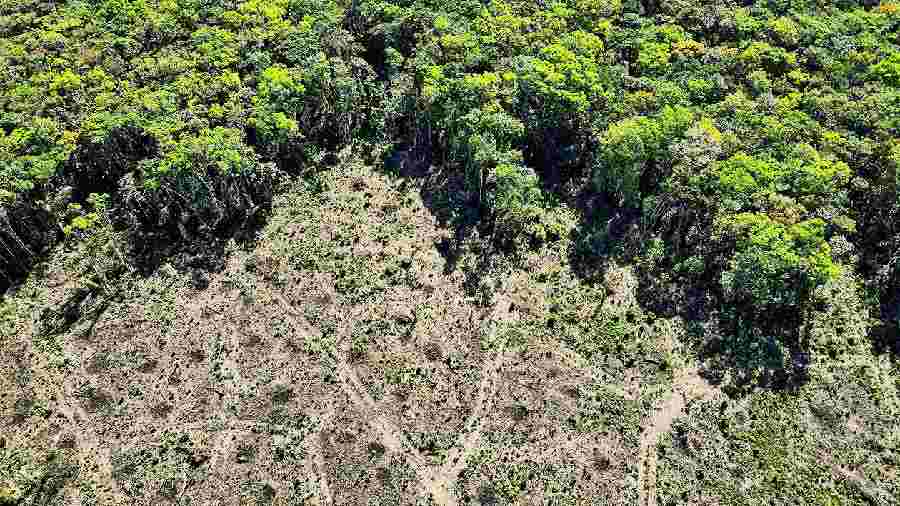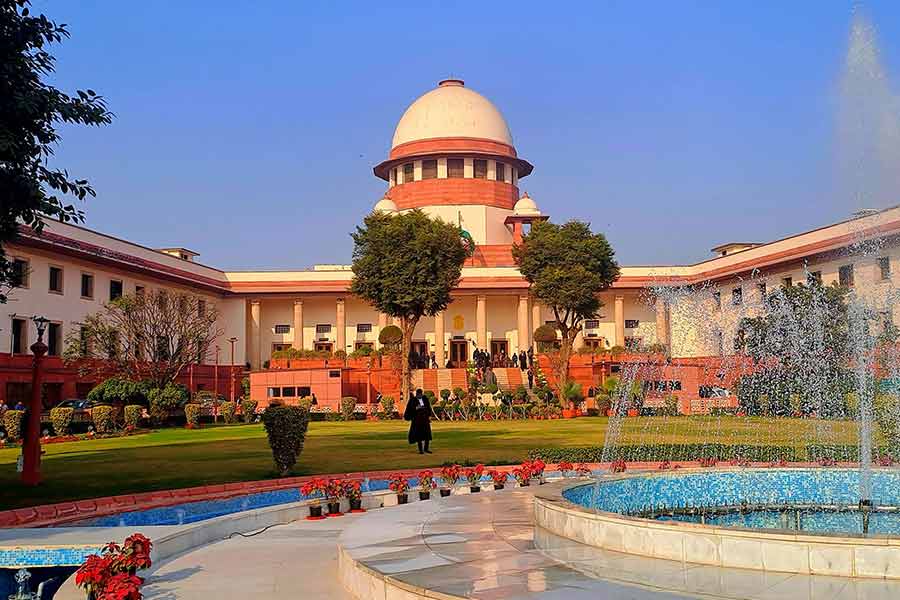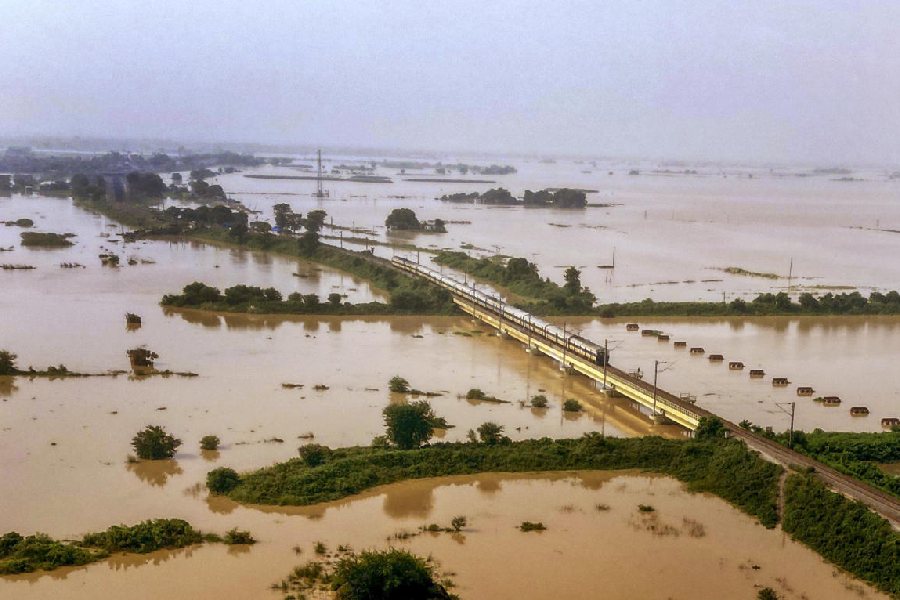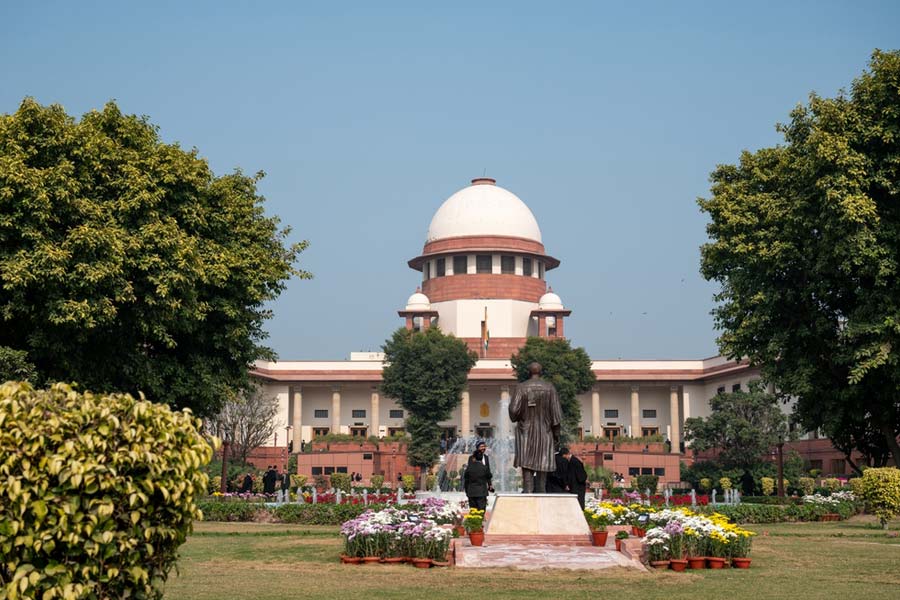The word, ‘development’, is usually associated with a change for the better, a progression towards an improved state of affairs. When used in the context of an economy, it usually means material enhancements in the standard of living of some, if not all, members of that economy. The essence of the matter revolves around the word, ‘change’, towards something more desirable or preferred. There are many difficulties that arise when we use the word, development, in a loose fashion. A number of questions crop up. When we say that, for instance, the economy of the United States of America is more developed than that of India, do we merely compare national incomes or national wealth? In most instances, we do so. However, the deeper question is this: why should we always take material wealth or consumption of goods as the ultimate criterion of economic development?
A simple example will suffice. Consider the two economies, China and India. If we are to compare the state of affairs at a point of time in the two countries, can we say that China is more developed than India? Has it progressed more than India? Towards what end? Consider an alternative situation — India in 1947 and India in 2022. Can we say India has developed during this period of time? We are comparing China and India now, or we are comparing India circa 1947 and India now? The points of comparison show differences. How do we evaluate these changes? The changes can constitute progression, stagnation or regression. Hence development, as change, is dynamic, and requires an evaluating criterion (or a set of criteria).
There are many ways in which socio-economic change can be viewed and evaluated. There are a number of economists who argue that development is about growth in the availability of goods and services. To produce more, industrialisation and the use of science-based technology are considered the best instruments of change. The institutional apparatus that facilitates this growth is usually assumed to be parliamentary democracy and free markets with voluntary exchange. Hence, according to this view, the end state of development is a materially rich country with free markets and democracy. The future is best handled by keeping these quantitative changes going: more goods, more incomes, and more consumption. Progress is purely quantitative and material.
There are other economists who believe that an end state will arrive in the process of economic development, but there will be substantial qualitative changes leading to transformations in the market economy and the distribution of political power. For instance, Marxists would tend to believe that the current structure of market economies is inherently unfair and unstable. A classless worker’s state would be the end result of economic development. There are other scholars who tend to argue that development is uneven, unpredictable, and changes occur in a non-linear fashion over time and geographies. Hence, there is no predictable end state of development, and there is no progression to a better or more desirable world that humans could create.
There are problems associated with each of these intellectual positions. Consider the belief that the market economy and its wealth creation apparatus are the ultimate economic structures in human history. It is now clearly evident that such an economy cannot progress and develop in a purely quantitative way without bringing about its own collapse. The inability to factor in natural resource constraints and the failure to control waste emissions would bring about a downfall in the economy. The capitalist market economy, the way it functions now, is patently unsustainable.
The ideas of radicals and other scholars who dreamt of some utopia different from the capitalist order have been unable to demonstrate that such worlds could be actually sought after and created by human agency. Indeed, some of the efforts to create such worlds, like the twentieth-century experiments to create socialism, have failed resoundingly. Those who believe that history has no meaning and development is a kaleidoscopic pattern of endless variations of the same components might have difficulty in explaining the massive changes that human societies have witnessed since the recorded history of humankind. Substantial change has occurred over time, and that change cannot be captured by mere material improvements or some convergence towards a predictable end state.
A number of scholars have emphasised the expansion of freedom and liberties in a society as the hallmark of development — more freedom to do things an individual or society chooses as well as greater freedom from constraints to a good life, such as freedom from hunger or ignorance. This view is the most acceptable in terms of justice and fairness and does not talk about a final end state of development. However, this view, too, has some limitations when we consider the sustainability of the process of expanding spaces of freedoms. This worldview does clarify that individual and social freedoms cannot restrict the space of freedom of other individuals or other societies. However, it does not clarify that freedoms and liberties cannot encroach on natural processes so as to damage them in irreversible ways.
Human history started when change was perceptible in society and was different from nature, which was considered to be changeless, static. Humans began to perceive time through a series of social events with broad consequences. In most of these cases of momentous change, human knowledge about the planet and about themselves increased significantly. Humans were able to bring about substantial changes within small periods of time because they were able to transmit accumulated knowledge from one generation to the next. This was the real well-spring of human development. This helped tear asunder human history from the larger planetary history of evolution. Biological development is about transmission of genetic inheritance and occurs over millennia. Economic development is about the social acquisition of characteristics that can occur within a generation. For instance, the human brain of modern humans is about the same size as that of humans 5,000 years ago. But the effectiveness of human thinking has multiplied manifold.
One might argue, then, that human development is the accumulation and transmission of knowledge over generations. This cannot be measured through material progress alone. Human beings are part of the biological evolution story too, and they are just another (albeit smart) species in the animal kingdom. Hence the history of humanity cannot be completely independent of the planetary story of evolution. If history, in this bigger framework of the planet, is a journey, then the accumulated human knowledge must sustain this journey. Changes brought about in economy and society ought not to lead to a series of crises and disruptions in the forces of nature and natural processes.
One can view history as a voyage of development of knowledge that makes humans free from debilitating constraints of hunger and disease and provides freedom to do things of their choice, such as leading a preferred lifestyle. No story of economic development can be meaningful if it is inconsistent with the planetary history of evolution. Hence, development must be sustainable — the use of human knowledge must do no harm to destroy nature. Yet, the human ability to cause harm to nature is much more than the ability to conserve and create. Economic development must be viewed as a progression of ideas and understandings that protect and preserve nature in its entirety, yet making human life easier and more enriching. Achieving it is not easy even though we are a clever species. The big question remains: are we clever enough?
Anup Sinha is former Professor of Economics, IIM Calcutta











